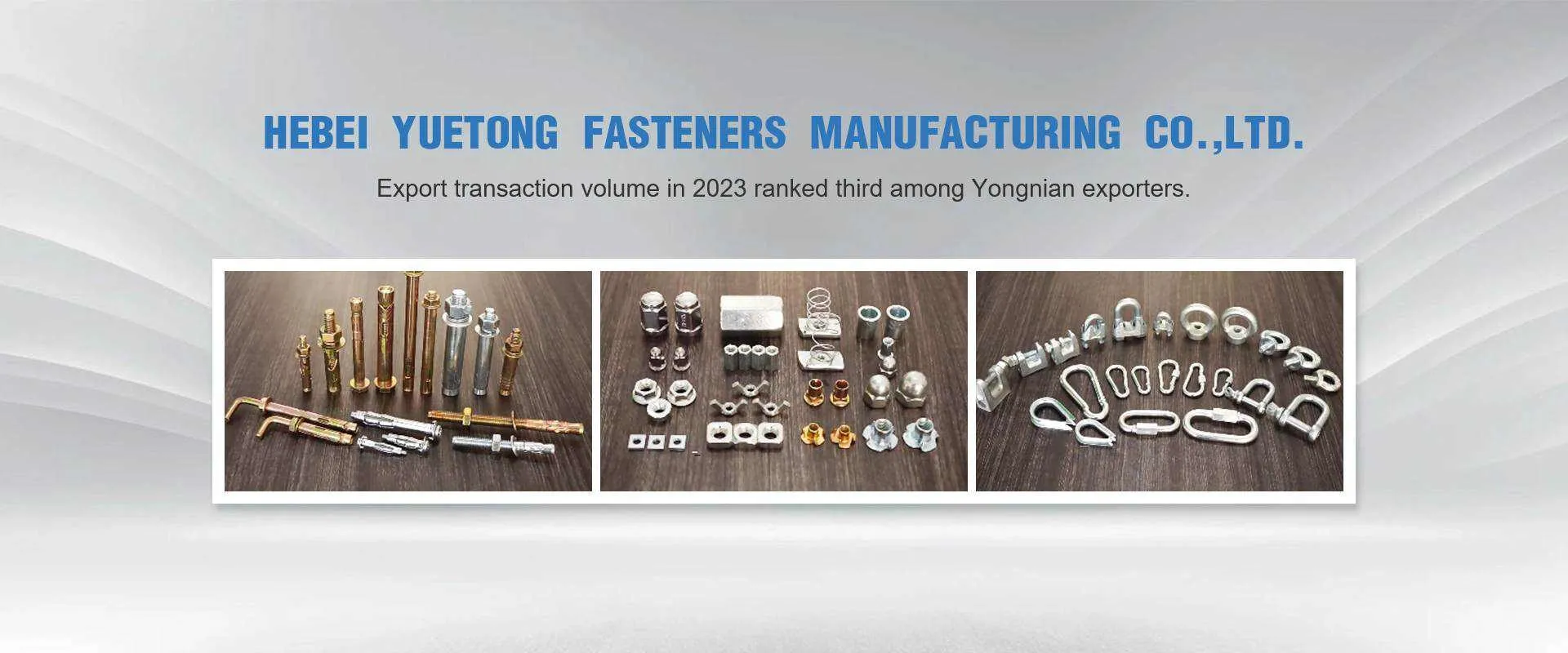Oct . 31, 2024 10:09 Back to list
hex nut zinc
Hex nuts, often referred to as hexagonal nuts, are essential components in various mechanical and construction applications. These six-sided fasteners are designed to be paired with bolts, screws, and other threaded rod elements, facilitating connections that are both secure and stable. The versatility and reliability of hex nuts make them a staple in countless industries, from automotive to aerospace, and construction to manufacturing.
One of the most notable finishes for hex nuts is zinc plating. The process of zinc plating involves the application of a thin layer of zinc to the surface of the nut, which serves as a protective barrier against corrosion. This is particularly important in environments where moisture, chemicals, or extreme temperatures can cause steel components to rust and deteriorate. Zinc, while not impervious, significantly enhances the durability and lifespan of hex nuts, making them a popular choice for outdoor applications, such as in the construction of bridges, buildings, and guardrails.
.
When selecting hex nuts, it is crucial to consider the specific requirements of the project. The thread size, material, and coating are all significant factors that can affect performance. Zinc-plated hex nuts are widely available in various sizes, allowing for compatibility with a vast range of bolts and threaded rods. For example, a standard hex nut may be designed to fit with a specific grade of bolt to ensure the mechanical properties of the assembly remain intact.
hex nut zinc

Another benefit of zinc-plated hex nuts is their cost-effectiveness. Compared to other materials or finishes, zinc plating offers a relatively low-cost solution for improving the durability of fasteners without sacrificing performance. This makes them an attractive option for manufacturers looking to maintain budgetary constraints while ensuring the quality and longevity of their products.
However, it is essential to note that while zinc provides excellent protection against rusting, it does have its limitations. In environments that experience high levels of chloride exposure, such as coastal areas, zinc may corrode more quickly. In such cases, alternatives like stainless steel hex nuts or nuts with superior coatings, such as hot-dip galvanized or epoxy-coated options, could be more suitable.
In conclusion, hex nuts are a fundamental part of mechanical assemblies, and when zinc-coated, they provide enhanced corrosion resistance and aesthetic appeal at a cost-effective price point. Understanding the application and environment in which these fasteners will be used is crucial for selecting the right type of hex nut. Whether in construction, automotive, or other industries, the right choice can lead to long-lasting and reliable connections, ensuring the safety and integrity of the structures and systems they support.


